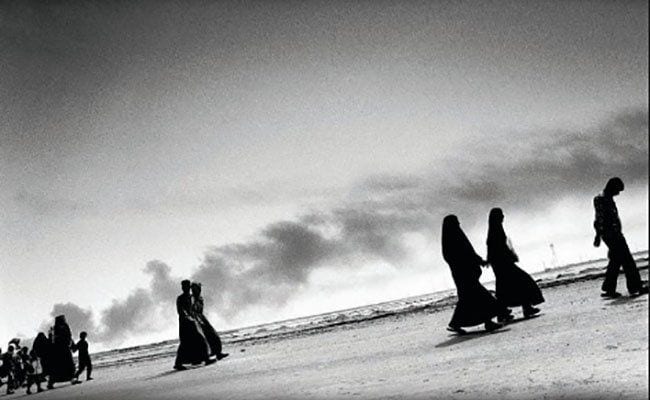
‘We would not focus so much energy and attention on a single story,’ writes New York Times Magazine editor-in-chief Jake Silverstein, ‘were we not convinced that what follows is one of the most clear-eyed, powerful and human explanations of what has gone wrong in this region that you will ever read.’
The publication effort that went into Scott Anderson’s Fractured Lands: How the Arab World Came Apart is self-evident. The report occupied an entire issue of the New York Times Magazine, was permanently put up online in its entirety, and finally reprinted as the book we are now reviewing.
The sheer scope and ambition of the project justify this special editorial emphasis. Essentially an interweaving of six short biographies based on the lives of disparate individuals from Iraq, Egypt, Libya, and Syria, the book aims to tell a succinct history of the political, cultural, and military turmoil that befell the Middle East in the last 20 years through the eyes of the people who experienced it. To this end, Anderson splits Fractured Lands into five parts, from a sweeping introduction to the region’s history (‘Origins’), through a more detailed account of the American invasion of Iraq in 2003, the social upheavals of the Arab Spring, the rise of Islamic State (ISIS), and finally the migration surge that precipitated the ongoing refugee crisis.
That Fractured Lands manages to weave these complex separate histories into a single, congruent narrative is a remarkable achievement in and of itself. Indeed, I originally decided to read this entire report as a way of reorganising and clarifying my views on a historical moment that seemed increasingly muddled. Fractured Lands met all of my expectations in this sense and then went on to exceed them greatly.
The idea of telling these events through the lens of six people who bore the brunt of them makes for an incredibly vivid and compelling reading experience. These individuals are interesting: we have a seasoned female political schemer in Egypt, a double-crossing spy in Lybia, an innocent college student in Syria, and three individuals in Iraq – a women’s rights activist, an ISIS fighter, and a Kurdish guerrilla commander.
The college student aside, none of these people really start in their roles but are pushed into them by the unfolding events. Their lives before the various crises seem normal, often even mundane, making the foretold descent into tragedy all the more poignant.
Herein lies the crowning achievement of Fractured Lands: not its (all the same excellent) synthesis and illustration of the geopolitical processes in the Middle East, but its ability to put a human face on them. Whatever the cultural gap, there is nothing alien or difficult to understand about Anderson’s subjects; their motivations and feelings are transparent, their testimony needs no elucidation, and their disasters appeal directly to the heart.
There are a few criticisms to be levelled at the book. Anderson’s journalistic language is a little too obvious in places (cliffhangers and bullet-like sentences). While it’s only right that he should focus on the Middle East, sometimes the role of the West could do with clarification. There are passages in which Anderson writes that ‘Western air support’ led to a turn of events without explaining why or how that air support got there or even which country the ‘West’ is exactly, and the effect is a little jarring. Fractured Lands has no maps, which seems like a silly oversight, and it lacks a few features that appear on the online version (for example, some small portraits at the beginning of each chapter which help us keep track of who’s who).
Even with these few complaints, however, Fractured Lands remains sensationally successful, clearer, and more illuminating than almost any journalistic account of these events I’ve ever encountered. It illustrates the vicious circles by which the West’s interventionist policies produce the same crises which call for more intervention and paints a detailed portrait of modern-day refugees at a time when they are systematically misappropriated and misrepresented by both sides of our political discourse. Fractured Lands should be required reading in college courses everywhere.

